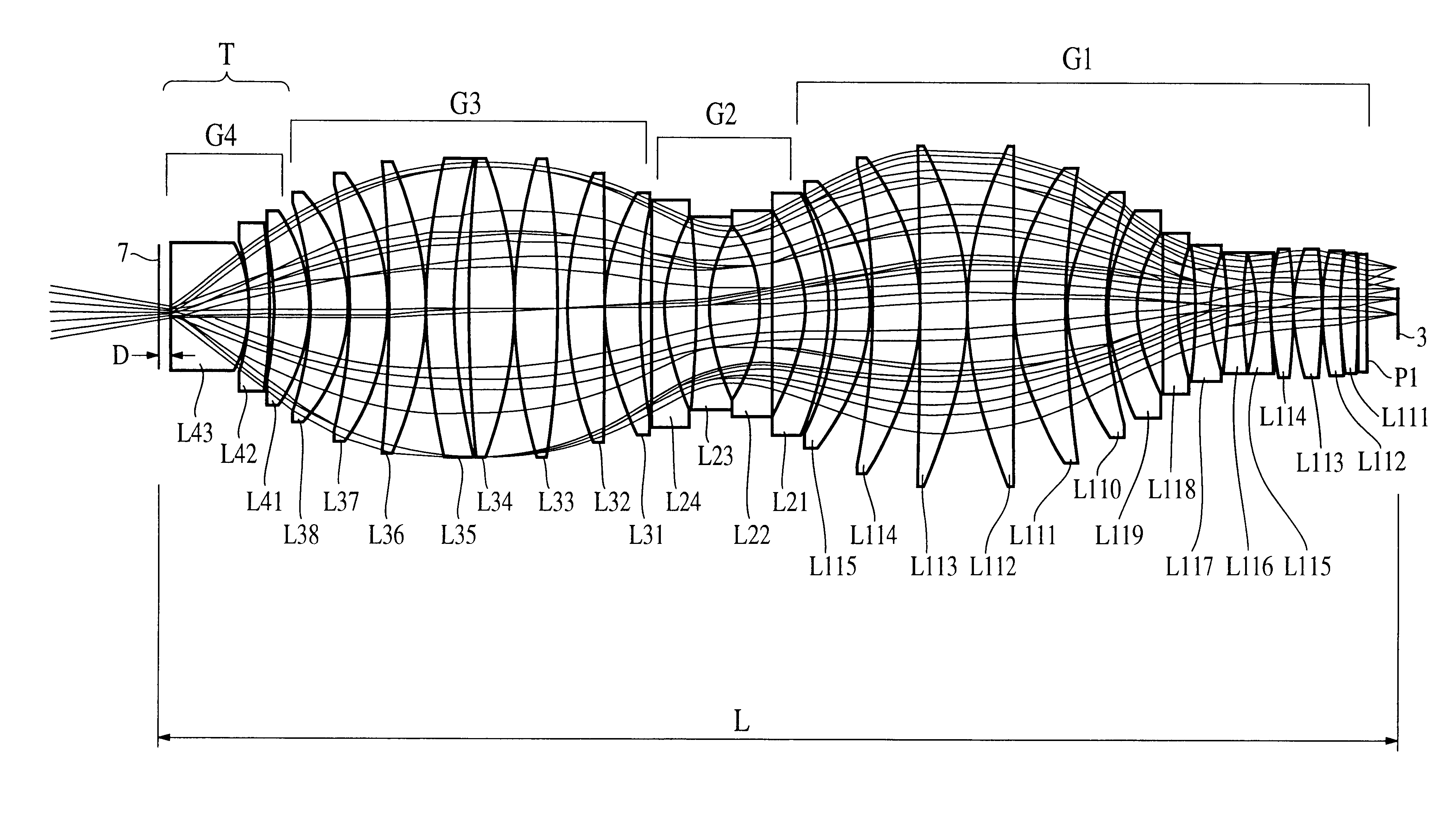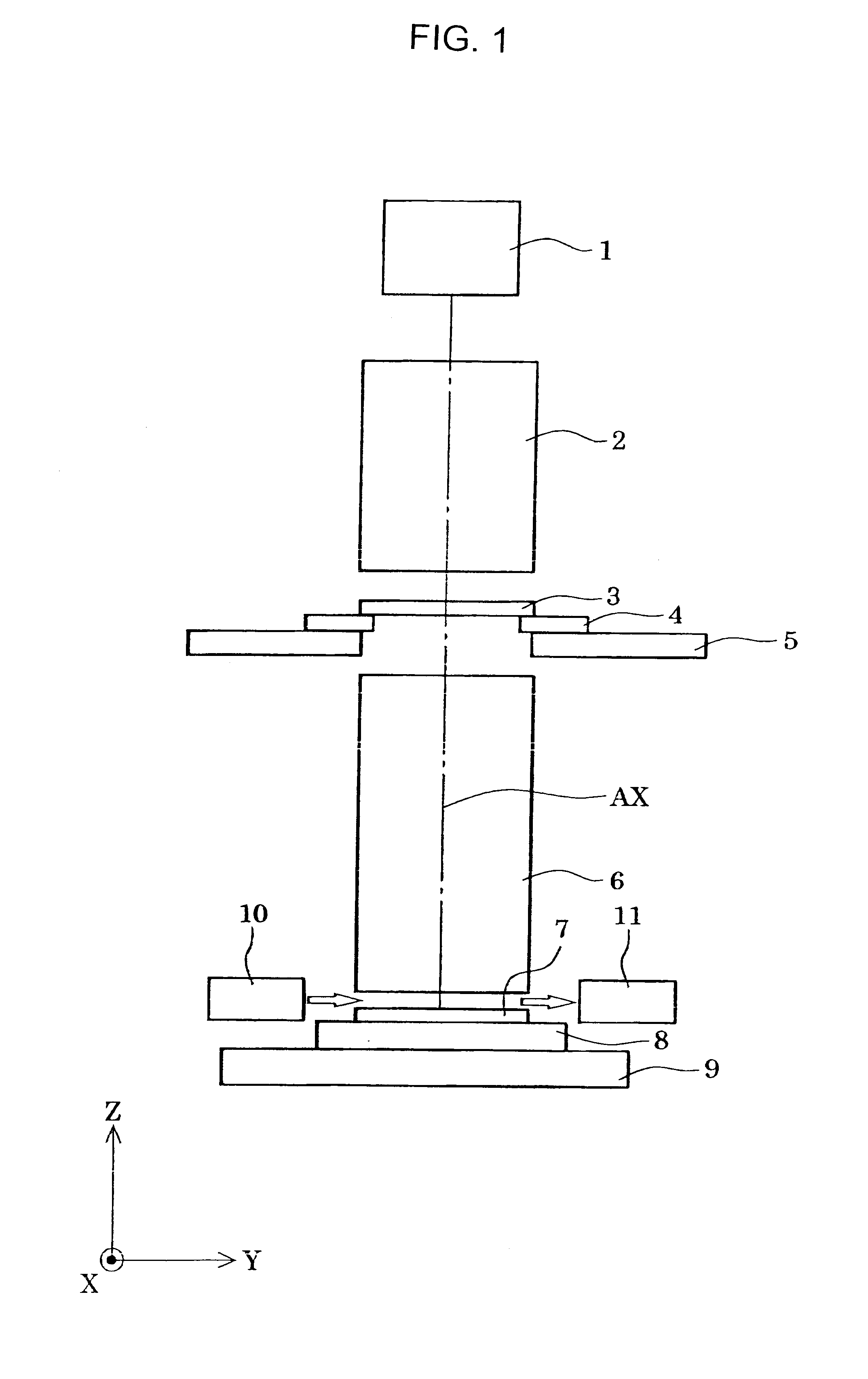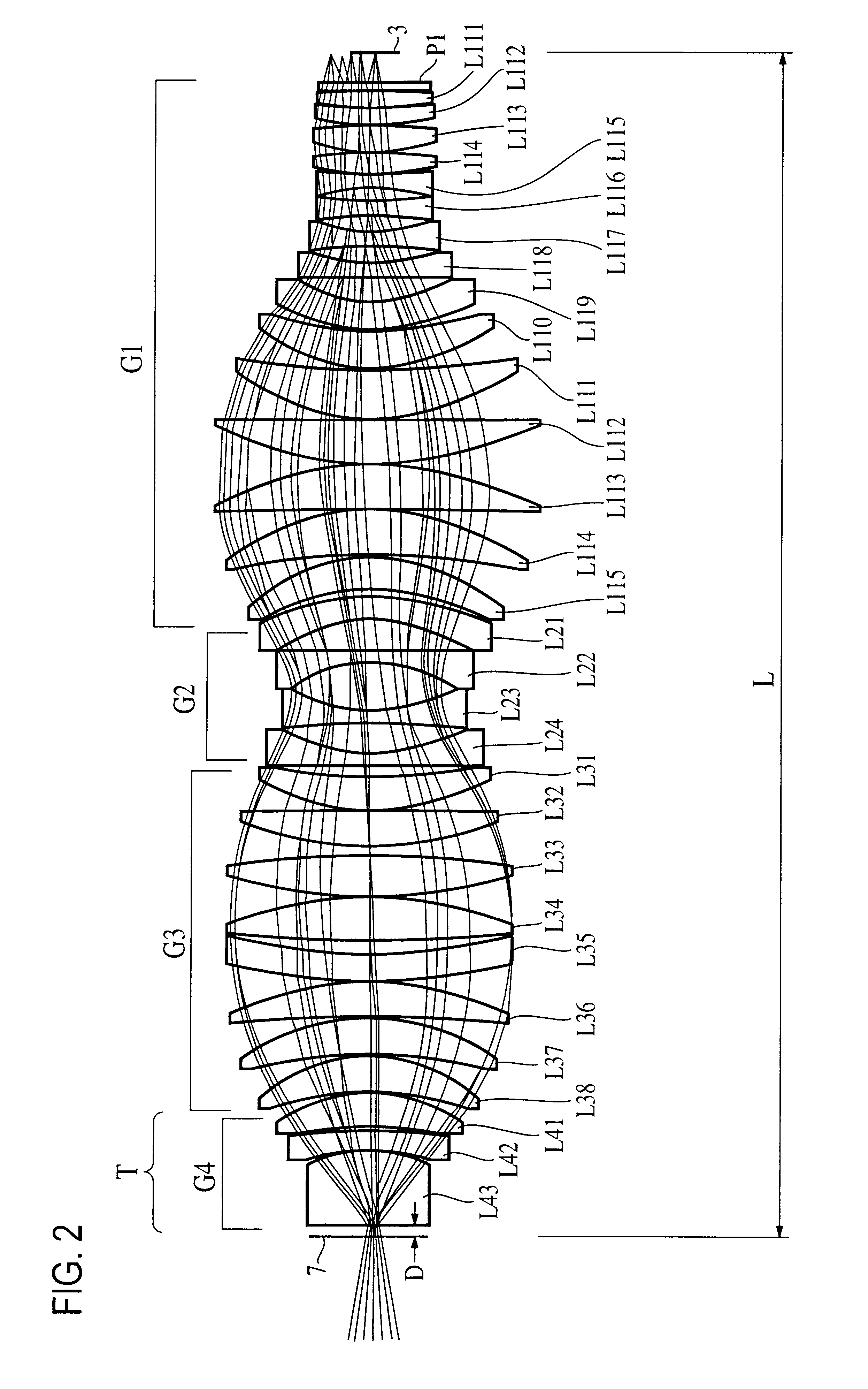Projection optical system and exposure apparatus having the projection optical system
a technology of projection optical system and projection optical system, which is applied in the direction of photomechanical apparatus, instruments, printers, etc., can solve the problems of difficult to obtain the required homogeneity of optical material blocks, and difficult to manufacture optical systems of good performan
- Summary
- Abstract
- Description
- Claims
- Application Information
AI Technical Summary
Benefits of technology
Problems solved by technology
Method used
Image
Examples
embodiment two
FIG. 4 is a figure showing the structure of lenses of a projection optical system according to the second preferred embodiment of the present invention. In the lenses of FIG. 4, a first lens group G1 comprises, in order from the mask side: a parallel plane plate P1; a biconvex lens L11; another biconvex lens L12; yet another biconvex lens L13; still yet another biconvex lens L14; a negative meniscus lens L15 which presents its convex surface to the mask side; a biconvex lens L16; another biconvex lens L17; yet another biconvex lens L18; a negative meniscus lens L19 which presents its concave surface to the mask side; a positive meniscus lens L110 which presents its concave surface to the mask side; another positive meniscus lens L111 which presents its concave surface to the mask side; a biconvex lens L112; another biconvex lens L113; a positive meniscus lens L114 which presents its convex surface to the mask side; and another positive meniscus lens L115 which presents its convex su...
embodiment three
FIG. 6 is a figure showing the structure of lenses of a projection optical system according to the third preferred embodiment of the present invention. In the lens of FIG. 6, a first lens group G1 comprises, in order from the mask side: a biconcave lens L11; a biconvex lens L12; another biconvex lens L13; a positive meniscus lens L14 which presents its convex surface to the mask side; a negative meniscus lens L15 which presents its convex surface to the mask side; a biconcave lens L16; another biconcave lens L17; a positive meniscus lens L18 which presents its concave surface to the mask side; a biconvex lens L19; another biconvex lens L20; a positive meniscus lens L21 which presents its convex surface to the mask side; and another positive meniscus lens L22 which presents its convex surface to the mask side.
Furthermore, a second lens group G2 comprises, in order from the mask side: a negative meniscus lens L23 which presents its convex surface to the mask side; another negative men...
PUM
| Property | Measurement | Unit |
|---|---|---|
| central wavelength | aaaaa | aaaaa |
| refractive index | aaaaa | aaaaa |
| refractive index | aaaaa | aaaaa |
Abstract
Description
Claims
Application Information
 Login to View More
Login to View More - R&D
- Intellectual Property
- Life Sciences
- Materials
- Tech Scout
- Unparalleled Data Quality
- Higher Quality Content
- 60% Fewer Hallucinations
Browse by: Latest US Patents, China's latest patents, Technical Efficacy Thesaurus, Application Domain, Technology Topic, Popular Technical Reports.
© 2025 PatSnap. All rights reserved.Legal|Privacy policy|Modern Slavery Act Transparency Statement|Sitemap|About US| Contact US: help@patsnap.com



